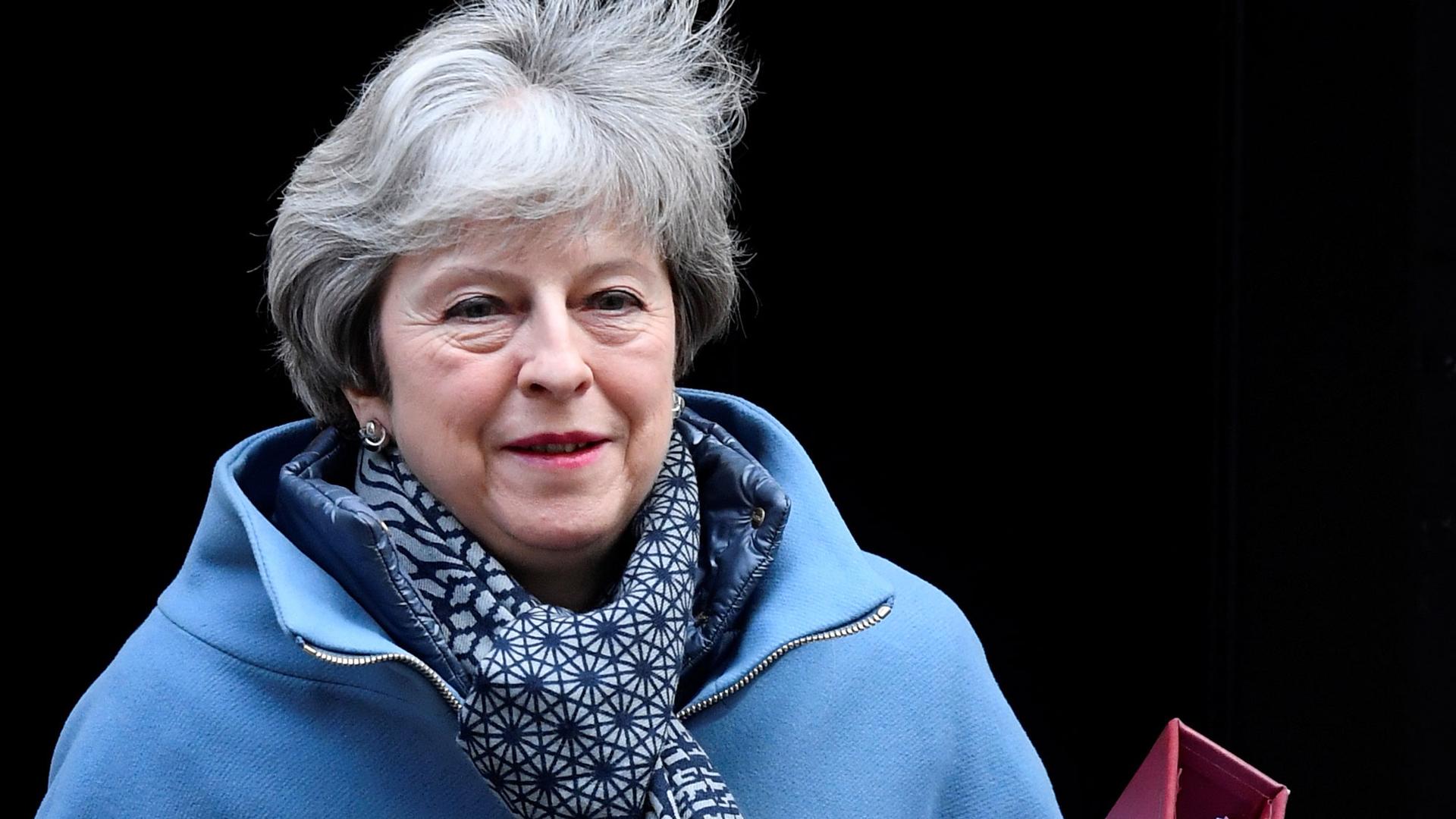Momentum gathers behind British lawmakers’ bid to stop no-deal Brexit
Britain’s Prime Minister Theresa May leaves Downing Street in London, Britain, Jan. 23, 2019.
Britain’s opposition Labour Party said it was highly likely to throw its parliamentary weight behind an effort to prevent a no-deal Brexit.
The United Kingdom, in the deepest political crisis since World War II, will, according to law, to leave the European Union on March 29, yet it has no approved deal on how the divorce will take place.
Prime Minister Theresa May is battling to break the deadlock after last week’s crushing defeat of her two-year attempt to forge an orderly divorce raised the prospect of an exit without a deal.
In a step that could overturn centuries of constitutional convention, some lawmakers are trying to grab control of Brexit from the government in an attempt to prevent what they say would be an economically disastrous no-deal departure.
The opposition Labour Party looks set to back one such attempt, an amendment proposed by Labour lawmaker Yvette Cooper that could result in May being given until Feb. 26 to get a deal approved by parliament or face a parliamentary vote on delaying Brexit.
John McDonnell, the second most powerful figure in the party, told the BBC the amendment was sensible, and that Labour was “highly likely” to back it. At least nine Conservative lawmakers have also publicly said they will support it, suggesting that it has a good chance of passing.
Related: 5 reasons Americans ought to care about Brexit
Pound rises
Sterling strengthened 0.5 percent against the dollar to $1.3024, the highest level since mid-November, on a view that a no-deal Brexit can be avoided if parliament exerts greater control over the process. It also rose for a third consecutive day against the euro to 87.33 pence.
As the United Kingdom’s tortuous two-and-a-half year crisis over EU membership approaches its finale, the possible outcomes for the world’s fifth largest economy still include a no-deal Brexit, a last-minute deal, a delay or a snap election.
May has said thwarting Brexit would threaten social cohesion because it would undermine faith in British democracy, while police have said the “febrile” atmosphere could be exploited by far-right extremists.
Parliament will vote on Jan. 29 on different options put forward by lawmakers, potentially opening a way out of the stalemate.
If the Cooper amendment is passed, it would effectively give parliament the power to set May a deadline of Feb. 26 to get a deal through parliament.
If May fails, parliament would be given a vote on asking the EU for a postponement of the Article 50 deadline to prevent Britain leaving without a deal on March 29. It proposes a nine-month extension, to Dec. 31.
Backstop problem
Another alternative is that May gets enough concessions from the EU to win over rebels in her Conservative Party as well as the Northern Irish party that props up her minority government.
Some have indicated they could be won over if May manages to secure concessions on the so-called Northern Irish backstop, an insurance policy to keep the border open between the British province and Ireland if a future trade deal falls short.
However, European Commission First Vice President Frans Timmermans told an event in Poland on Wednesday that “We will support Ireland … the backstop is a red line we cannot negotiate with the British government.”
More than 430 lawmakers voted against May’s deal last week, the biggest defeat of a government in modern history. To get it passed this time, she needs more than 100 of those to change sides.
To win concessions from the EU, though, May will have to set out exactly how she hopes to solve the Brexit riddle.
EU Economic Affairs Commissioner Pierre Moscovici said in Davos that the risk of a no-deal Brexit had increased and it was up to the British to tell the EU how they proposed to break the impasse.
“The gravity of the situation lies in the fact that London is silent,” one EU diplomat said.
“They are not asking for anything, making no specific demands, not even to extend Article 50, it’s silence on their end,” the diplomat said. “Time is extremely tight.”
By Guy Faulconbridge and William James/Reuters
Additional reporting by Kylie MacLellan and Andrew MacAskill in London; Writing by Guy Faulconbridge; Editing by Kevin Liffey.
